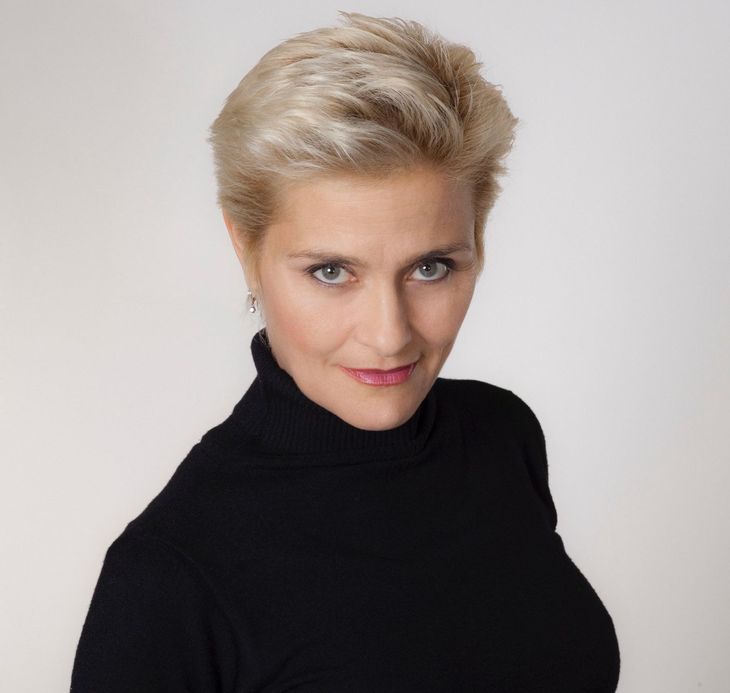“A girl who had hopes and dreams can become a hermetic and closed being because she needs to protect herself,” says Lucila Gandolfo about his character in “A movie without Julie”, which addresses the story of a girl from 6 years old to her 60s and incorporates from her childhood to Julie Andrews like your invisible friend.
The show won several Hugo awards last year and returns to the Maipo theater on Thursday, based on an idea by Gandolfo with text and music Fernando Albinarrate and address of Julio Panno. They then hope to take it to New York and London.
Gandolfoaccompanied on the piano by Albinarrate, reviews more than 30 original songs from Rodgers and Hammerstein, Lerner and Loewe, Sherman, Bernstein, among many others. We talk with Gandolfo.
Journalist: How did this story of invisible friend Julie Andrews come about? Did you have an invisible friend in childhood?
Lucila Gandolfo: It arises from an idea of wanting to honor her. She was an inspiration for children of so many generations around the world, The Sound of Music, Mary Poppins, where so many of us grew up watching her, with those governesses or nannies who were so endearing. They put up with the boys’ jokes, they knew how to set limits with respect, love, and play. She wanted to sing her songs, being a fan. I didn’t have an invisible friend but I thought it was important to highlight those characters that one saw on the screen as a child and they hit hard. The author shares with me this admiration for Julie and created this situation that when the girl at 6 years old sees “The Sound of Music” she is so enchanted that she adopts her as her invisible friend.
5dc915ff-5ecc-45b3-ad2e-28fa8ae96946.jpeg
Gandolfo in his tribute to Julie to “The Sound of Music” and “Mary Poppins,” among others.
Q: What themes does the work address?
LG: The themes are fantasy, illusion in childhood, desires, an adolescence of difficulty in bonding, approaching the opposite sex, shyness, discomfort, falling in love, lack of love, bullying, violence or cruelty from classmates, situations of harassment, abuse, and how they can generate disenchantment. They abandon their dreams and stop being what they would have wanted. The pain, but also the hope, the rescue, the love to care for others. Many emotions go through because it is the life of a girl until she is 60 years old.
Q: How did you choose the song repertoire? Why those composers?
LG: Most are from Julie Andrews’ repertoire and appear because the character is thinking about it and imagining it. There is a moment where he chooses to start singing, he dresses up and grabs a repertoire that he sings and dances, a song from Funny Girl appears, another from Judie Garland, West Side Story, but we mainly choose The Sound of Music, Mary Poppins, Victor Victoria, and my favorite Willy Wonka song called Pure Imagination.
Q: What is it like to be alone on stage even though the musicians are there?
LG: It is not the first time, 11 years ago I wanted to do a monologue and Gonzalo Demaría gave me La Maestra serial, an incredible monologue and I really enjoyed doing that North American teacher. I really like the adrenaline that comes from being alone on stage. Julie’s was going to be a kind of piano concert and I ended up doing it alone together with Fernando, who finished putting it together with Julio Panno as a solo act. There is a lot of concentration, the work is so well written that although I fear forgetting the lyrics and the fear of emptiness, Julio knew how to take me and mark emotional milestones where I can stop and reconnect with the character. It is a sensation of vertigo and a roller coaster before going on stage. There are many characters so I feel like there are a lot of us.
Q: What do you expect for the local and international debut?
LG: At a local level, let it be a success and for abroad it is already translated, I am rehearsing it in English and soon I will do performances here for an English-speaking audience and then take it abroad.
Source: Ambito
I am an author and journalist who has worked in the entertainment industry for over a decade. I currently work as a news editor at a major news website, and my focus is on covering the latest trends in entertainment. I also write occasional pieces for other outlets, and have authored two books about the entertainment industry.




